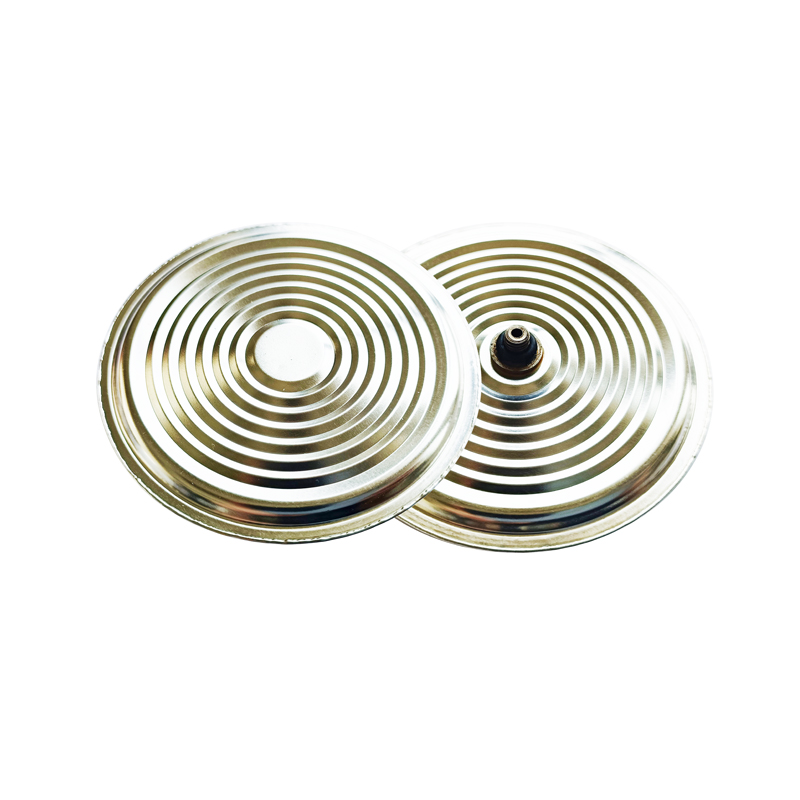
dec . 14, 2024 15:44 Back to list
Liquid-Filled Differential Pressure Gauge Manufacturing and Quality Assurance Process
Understanding Liquid-Filled Differential Pressure Gauges A Comprehensive Insight
Differential pressure gauges are critical instruments in various industrial applications, allowing for the measurement of pressure differences between two points in a system. Among the various types of differential pressure gauges, liquid-filled models are particularly favored for their accuracy, durability, and ability to thrive in harsh conditions. This article explores the workings, benefits, and applications of liquid-filled differential pressure gauges, with a focus on their manufacturing processes.
What is a Liquid-Filled Differential Pressure Gauge?
A liquid-filled differential pressure gauge is a device that utilizes a viscous liquid, typically glycerin or silicone oil, to dampen the movements of the gauge's internal mechanism. These gauges consist of two pressure ports, which measure the pressure at two points in a system and display the difference on a dial. The liquid filling serves to reduce the effects of vibrations and pulsation, resulting in more stable and accurate measurements.
How Does It Work?
The core principle behind a differential pressure gauge is relatively straightforward. The gauge consists of a sealed case that is filled with liquid. When pressure is applied through the two differing ports, the resulting pressure difference causes a diaphragm or Bourdon tube to deflect. This deflection is then translated into a readable output, usually displayed on a calibrated dial. The liquid filling not only protects the internal components from dust, moisture, and other environmental factors but also stabilizes the response of the gauge to transient pressure changes.
Advantages of Liquid-Filled Differential Pressure Gauges
1. Enhanced Stability The primary benefit of liquid filling is the increased stability of readings. The fluid absorbs shocks and vibrations, which is particularly beneficial in dynamic environments like pump systems or industrial manufacturing processes.
2. Extended Lifespan Liquid-filled gauges are generally more robust than their dry counterparts. The filling protects the internal mechanisms from corrosion and wear, thus extending the gauge’s operational life.
3. Resistance to Temperature Fluctuations These gauges can tolerate temperature variations more effectively due to the properties of the filling liquid. This makes them suitable for a wide range of industrial applications that experience significant temperature shifts.
liquid filled differential pressure gauge factory

Applications in Industry
Liquid-filled differential pressure gauges are widely used across numerous industries, ranging from oil and gas to pharmaceuticals and food processing. Some common applications include
- Flow Measurement In many processes, monitoring the difference in pressure between inlet and outlet lines is crucial for ensuring proper flow rates in pipelines.
- Filtration Monitoring These gauges are integral in systems that use filters, helping to assess the degree of clogging and indicating when maintenance is necessary.
- Level Measurement In tanks, differential pressure gauges can measure the level of liquids based on the pressure difference between the top and bottom of the liquid column.
- HVAC Systems Monitoring pressure differences across filters or fans ensures optimal performance in heating, ventilation, and air conditioning systems.
Manufacturing Process
The manufacturing of liquid-filled differential pressure gauges is a meticulous process that ensures precision and reliability. It typically involves selecting high-quality materials for the gauge casing and internal components. The filling process is executed under controlled conditions to prevent any contamination of the liquid. After assembly, each gauge undergoes rigorous testing to confirm its accuracy and durability before being sent out to customers.
Conclusion
Liquid-filled differential pressure gauges are indispensable tools in modern industry, providing vital pressure measurements with enhanced accuracy and stability. Their ability to withstand challenging environments while maintaining performance makes them a top choice for engineers and technicians. Understanding the mechanics and benefits of these gauges is essential for anyone involved in the fields of process control or instrumentation, ensuring that optimal performance and safety standards are met across various applications.
-
Precision Differential Pressure Gauge Factory Custom Solutions & OEM Services
NewsMay.27,2025
-
Pressure Diaphragm Capsule Elements High-Accuracy & Durable Solutions
NewsMay.27,2025
-
WIKA Pressure Gauge Accessories Custom Solutions & Quotes
NewsMay.26,2025
-
Medical Air Pressure Gauges Precision & Certified Solutions
NewsMay.26,2025
-
Fluke Differential Pressure Gauges Precision Instruments for Industrial Use
NewsMay.25,2025
-
WIKA Differential Pressure Gauge 700.01 - High Accuracy & Durable Design
NewsMay.25,2025
